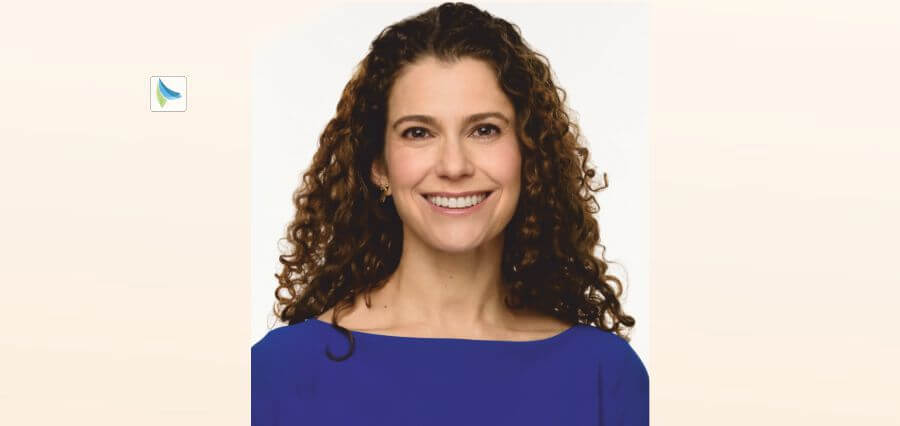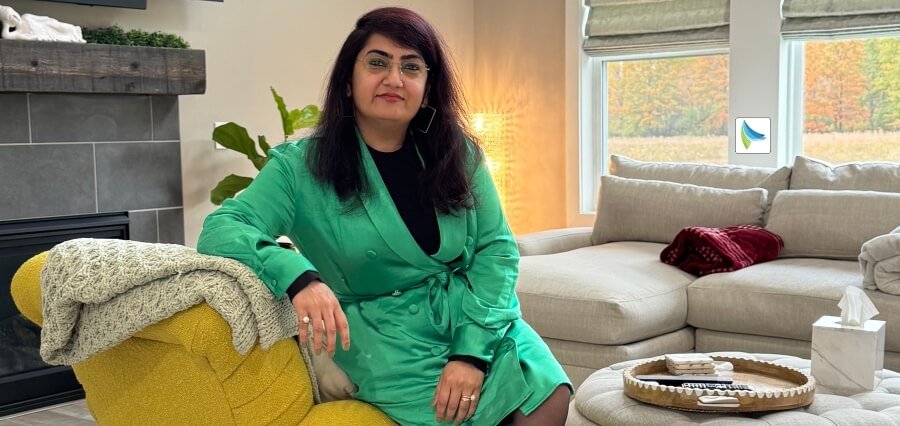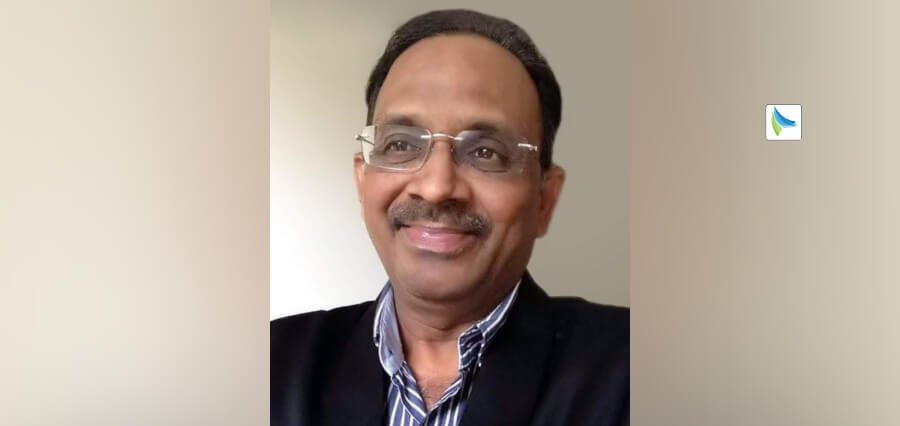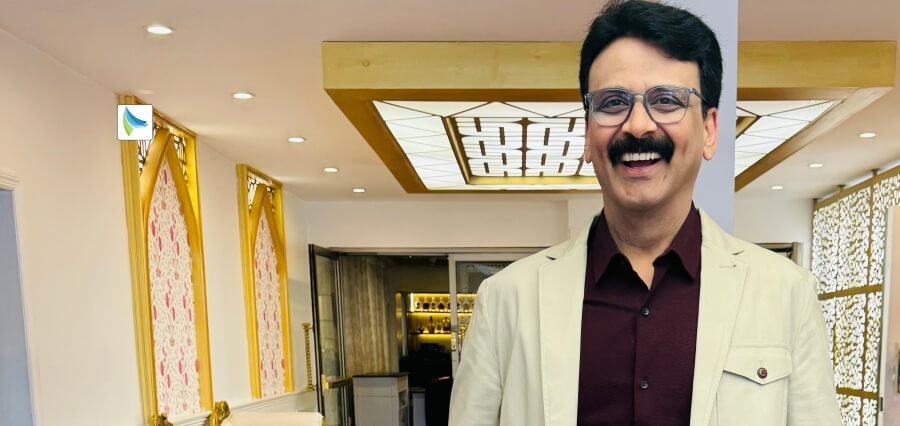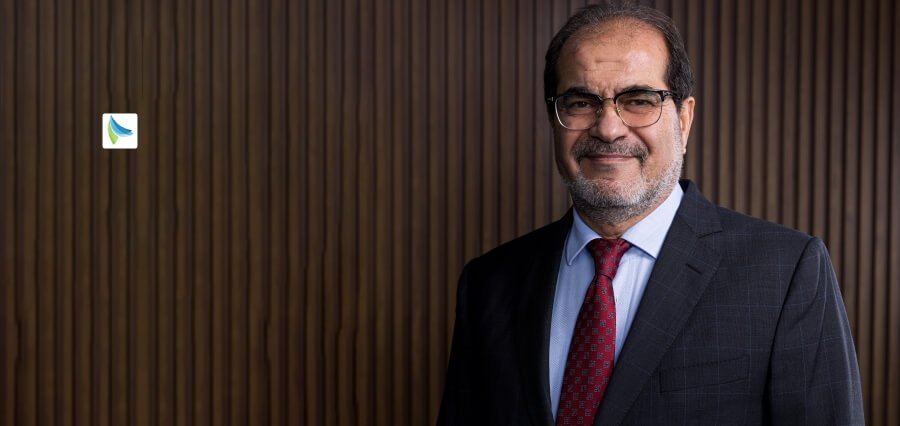Corporate sustainability and digital transformation are merging forces. Digital tools like AI and big data can optimize resource use, cut emissions, track progress, and much more. Leaders are stepping towards championing this shift, integrating sustainability into digital strategies.
Within the technology sector, Sophia Leonora Mendelsohn stands out as a proactive leader leading transformative change. With a background in organizational transformation and futurism, Sophia brings a unique perspective to her role as Chief Sustainability and Commercial Officer at SAP.
Before joining SAP, Sophia navigated the dynamic realm of organizational transformation and futurism within the technology sector. She consistently balanced immediate financial goals with a visionary approach to sustainability, recognizing the imperative of integrating ESG considerations for long-term business viability.
At SAP, Sophia spearheads initiatives that include more than conventional business models, aiming to usher in a new era of low-carbon, circular economy solutions. Her strategic leadership and innovative mindset drive the development of sustainable business practices further positioning SAP at the forefront of transformative change within the industry.
Pioneering Sustainability
Sophia serves as the Chief Sustainability and Commercial Officer for SAP Sustainability. Her role involves overseeing SAP’s corporate sustainability efforts and advocating for sustainable solutions among customers. “Our goal is to drive meaningful change by integrating sustainability into every aspect of SAP’s operations,” Sophia emphasizes.
In her position, Sophia leads a team dedicated to advancing sustainability practices within SAP and beyond. They focus on developing innovative strategies and solutions that align with environmental and social responsibility goals. “We aim to inspire our customers and partners to embrace sustainability as a business imperative,” Sophia explains.
Under Sophia’s leadership, SAP’s sustainability initiatives continue to evolve, demonstrating the company’s commitment to making a positive impact on the world while driving business success.
Recognized and Revered
Sophia’s journey into sustainability began in the early 2000s while working in a factory in China. “I was really able to see the impact of business choices, in regard to chemicals and paint use, on people,” she recalls. Witnessing firsthand the consequences of pollution fueled her passion for making a positive impact.
Her approach is driven by a desire to address environmental issues through commercial levers, aiming to tackle poverty and environmental health simultaneously. By integrating sustainability into business practices, Sophia seeks to create meaningful change that benefits both society and the planet.
Sophia has garnered acclaim for her leadership and commitment to corporate citizenship. She shares, “In 2016, I was honored to receive the US Environmental Protection Agency’s Climate Leadership Award and was named Climate Leader of the Year by Ethical Corporation.”
Her contributions have also been recognized by Bloomberg, which identified her as one of the top 30 individuals driving climate action in 2020.
Apart from accolades, Sophia’s expertise extends to academia. “I had the privilege of designing and instructing the inaugural ESG course at Harvard Extension School,” she notes. Sophia holds a Master of Science in Sustainable Management from Columbia University underpinning her comprehensive understanding of sustainability principles and practices.
Inspired by Youth
Sophia reflects on her interactions with Gen Z in senior roles. “When I started to engage with Gen Z, I immediately thought, ‘Whoa, they are mad,’” she shares. She perceives a strong wave of energy and almost anger from this younger generation towards the corporate world regarding climate issues.
Talking to Gen Z reaffirmed Sophia’s commitment to accelerate her efforts. “I felt that I better move even faster,” she acknowledges. The urgency and passion of Gen Z serve as a motivation for Sophia to work swiftly and diligently in her current role and beyond, recognizing the pressing need for impactful action in addressing environmental challenges.
Towards Strategic Alignment
Sophia reflects on the evolution of sustainability attitudes over time. “Back when I first started, people were like ‘are you here to make sure we are printing on both sides of the paper?’ or leaving cans to recycle on my desk as if I was the recycle bin,” she recalls.
She faced skepticism and resistance, with many dismissing sustainability as inconsequential. Sophia overcame these challenges by emphasizing business imperatives. “I shifted focus from operational excellence embodied by sustainability to customer expectations, to now, finally, business model transformation,” she explains.
Sophia’s approach highlights the strategic value of sustainability, aligning environmental and social goals with broader business objectives.
The Integrated Approach
“SAP aims to reshape global operations through an intelligent network of sustainable enterprises,” states Sophia. The company is committed to setting and achieving ambitious sustainability goals by enhancing environmental, social and economic performance while emphasizing good corporate governance.
Sophia highlights how SAP embeds sustainability into its end-to-end portfolio and optimizes with AI. “With SAP solutions, organizations can comply with evolving regulations, combining sustainability data with ERP data for precise and actionable insights,” she explains. This integration drives real change and creates competitive advantages, enabling customers to transition to agile business models that prioritize sustainable outcomes.
Accelerating Solutions and Compliance
“Generative AI will enable companies to find solutions to complex challenges by ingesting and learning from relevant business data,” explains Sophia. She emphasizes that in the near term, AI will facilitate faster and more accurate reporting, carbon calculations and regulatory compliance. Looking ahead, digital assistants will offer swift responses to sustainability queries like, “How can I reduce my CO2 emissions by five percent without affecting my profitability?”
Sophia anticipates that AI combined with business data will significantly accelerate the speed and impact of sustainability initiatives. Additionally, she envisions AI-generated code dynamically implementing new software features and functions enabling self-learning processes to maintain adaptability in a constantly evolving business landscape.
Challenges and Triumphs
“I remember when one of the big financial services companies first started to host sustainability conferences,” recalls Sophia. “Someone pointed out that this was the first time they had a conference where the line for the women’s restroom was longer than the line for the men’s restroom.”
She reflects on the past prevalence of predominantly young women at sustainability conferences and panels. “Unfortunately, both ‘young’ and ‘women’ had negative connotations, which meant that we were not taken seriously,” Sophia laments.
These experiences highlight the evolving perceptions and challenges faced in promoting sustainability initiatives, emphasizing the importance of diversity and inclusivity in driving meaningful change.
Aligning Sustainability Metrics with Financials
Sophia highlights a common oversight among businesses—failing to see sustainability as a powerful driver for innovation and operational change. “There is a tendency to isolate sustainability efforts rather than integrating them across the entire business,” she notes, leading to disconnected initiatives. She emphasizes the importance of a clear call to action and aligning sustainability metrics with financials to identify climate change-related risks effectively.
Sophia underscores the need for a shift from simply “doing less harm” to actively “doing more good,” stressing the importance of considering the comprehensive impact of business activities on economic, environmental and social fronts. This approach encourages businesses to embrace sustainability as a strategic imperative that drives positive change and innovation.
Innovating at the Edges
Sophia points out that many companies are missing out on opportunities within the circular economy. “SAP can help companies track and trace trillions of items that flow through their value chains each year,” she explains.
She highlights that exciting innovation and change often occur at the ‘edges’ where different groups intersect. Sophia encourages businesses to leverage technology like SAP’s solutions to unlock the potential of the circular economy, driving sustainability and fostering innovative practices across value chains. This approach enhances efficiency and contributes to environmental stewardship and economic resilience.
Collaborative Partnerships
Sophia features SAP’s collaboration with a robust ecosystem of partners driving sustainability innovation at scale. “We partner with technology firms like Accenture, Bearing Point, Deloitte, Cap Gemini, as well as management consultancies,” she explains.
In addition to these partnerships, SAP collaborates with NGOs such as WBCSD and EMF, standard-setting organizations like WEF and the Value Balancing Alliance, and many others to strengthen its global sustainability leadership.
Sophia emphasizes the importance of partnerships in social sustainability and Corporate Social Responsibility (CSR) efforts, citing involvement in global events like Climate Week and COP28. These collaborations enable SAP to amplify its impact and advance sustainable practices worldwide.
Sophia discusses Catena-X Automotive Network’s pioneering role in creating an open and collaborative data ecosystem aimed at enhancing sustainability across the automotive industry value chain. “Tracking the product carbon footprint is one of the first use cases that Catena-X is addressing,” she explains, emphasizing the importance of data transparency and inclusivity of all participants.
To ensure consistency, comparability and verifiability of product carbon footprint data, Sophia highlights the need for a common accounting and reporting methodology. By partnering with the World Business Council for Sustainable Development (WBCSD), Catena-X adopts a CO2 calculation scheme and data model framework.
Sophia mentions SAP’s groundbreaking achievement as the first organization to achieve a standardized carbon footprint value in a WBCSD proof of concept. This standardized approach encourages network partners to shift from industry average measurements to using accurate primary emission data, paving the way for enforceable decarbonization opportunities within the automotive industry.
Sustainability 3.0
Sophia emphasizes SAP’s unique understanding of the interplay between economics and climate, which has been fundamental to the company’s profitability and growth. “SAP’s success comes from understanding interconnectivity and leveraging it effectively,” she explains.
The understanding aligns with the direction of sustainability 3.0, where businesses aim to transition towards a low-carbon circular economy. Sophia underscores SAP’s strength in interlocking data sets and technologies, enabling deep business model transitions towards a modern, sustainable economy.
This integrated approach positions SAP to drive meaningful change by facilitating the transition towards sustainable business practices that prioritize environmental stewardship and economic resilience. The vision is to harness SAP’s capabilities to support businesses in achieving sustainability goals while unlocking opportunities for growth and innovation in a circular economy framework.
Step Into The Future
Sophia emphasizes the significance of companies adopting cloud technologies to accelerate carbon accounting capabilities. “The shift towards sustainable energy will largely occur in the cloud,” she asserts.
This transition is poised to leverage AI and extensive data analysis, driving advancements in sustainability practices. Sophia envisions a supply chain model where sustainability-related information is shared openly and seamlessly, similar to financial data exchanges. This integrated approach aims to enhance transparency and accountability across industries.
Towards a Low-Carbon Circular Economy
Sophia highlights SAP’s pioneering vision of developing a comprehensive, end-to-end approach towards a low-carbon circular economy. “SAP is going way past regulation and reporting to tackle the hardest to abate industries,” she explains.
She emphasizes SAP’s commitment to enabling climate and sustainability ambitions with granular, accurate and stable data, information, and insights. Sophia envisions a future where these insights empower CFOs to become Chief Sustainability Officers (CSOs).
This strategic shift aims to integrate sustainability considerations directly into financial decision-making, elevating the role of the CFO in driving sustainability initiatives within organizations. SAP’s approach is a result of a transformative vision towards embedding sustainability at the core of business strategies and operations.
Prioritizing Climate Action
Sophia emphasizes the importance of considering climate implications in various aspects of life. “When considering climate in the context of my investments, home and location, I prioritize understanding its implications,” she explains. She adopts a deliberate approach towards travel, ensuring that her flights contribute meaningfully to sustainability goals. “I don’t get on a plane unless I think it’s going to move the needle for sustainability,” Sophia notes.
Furthermore, Sophia aligns her spending with her values by supporting brands that share similar principles. “When I spend my money with a brand, I ensure that I align with their values and principles,” she emphasizes.
Sophia also underscores the significance of educating herself on climate science from trusted sources. “I make sure to educate myself on the science from reliable sources I trust,” she mentions, often leveraging the same platforms where she gathers business news for comprehensive insights into climate science.
Prioritization and Presence
Sophia emphasizes the importance of being fully present in each moment of her life. “It’s not about not having enough time in the day, but about being fully engaged in whatever I’m doing,” she explains. When she’s with her kids, Sophia immerses herself completely in the moment, enjoying activities like a real tea party where the tea is hot and the world around them fades away.
At work, Sophia practices intentional prioritization. “I ask myself, ‘Do I need to be doing this? Is it absolutely necessary that this gets done by me and today?’” she shares. This approach helps her manage her time effectively and fit everything into her schedule. Sophia also credits her supportive husband for helping her balance and navigate her busy life. “Also, my husband is amazing,” she adds with gratitude.
The Power of Specificity
Sophia points up the importance of targeting precision and specificity within the realm of sustainability. “It’s not just about sustainability in general, but identifying what specifically matters most,” she highlights. She encourages individuals to delve into specific areas of interest within sustainability such as focusing on sea-level rise or water availability and then honing in on particular industries.
Sophia recalls a conversation in Tompkins Square Park where she asked a young woman about her primary concerns. “She said ‘communication to the general public’ and ‘climate impact on food,’” Sophia recounts.
This interaction reflects the value of identifying specific priorities and areas of focus within sustainability, enabling individuals to channel their efforts effectively towards meaningful impact in areas that resonate with them personally.






